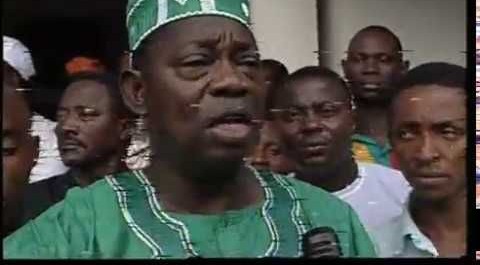MKO ABIOLA (1937 – 1998): Life and Times
MKO Abiola, also known as Moshood Kashimawo Olawale Abiola, was a remarkable Nigerian figure whose life and times left an indelible mark on the nation’s history. From his early struggles to his aspirations in politics and his pivotal role in Nigeria’s transition to democracy, this article delves into the fascinating journey of a man whose legacy continues to shape the country.
I. Introduction
MKO Abiola, a Nigerian businessman, publisher, and politician, was not just an ordinary figure in the annals of Nigeria’s history. He held the traditional title of Generalizimal of the Oyo Empire and hailed from the Yoruba stock of Western Nigeria. However, he is perhaps most widely recognized for his ambitious presidential run in 1993, an election that was later annulled, sparking significant controversy.
II. Early Life
Abiola’s journey began on August 24, 1937, in Abeokuta, Southwest Ogun State. Born into the family of Salawu and Suliet Ruruala Abiola, he emerged as his father’s 23rd child and the first to survive infancy, earning the name Kashimao, which means “let us wait and see.” His early years were marked by hardship as he supported his family through various entrepreneurial endeavors. Abiola’s academic journey commenced at African Central School in Abeokuta, where he later pursued his secondary education at the Baptist Boys High School.
III. Business Career
In 1956, Abiola embarked on his professional life as a bank clerk with Barclays Bank in Ibadan, Southwest Nigeria. Beyond his banking career, Abiola made significant investments in various sectors. He established businesses like Abiola Farms, Abiola Bookshops, Radio Communications Nigeria, Concord Press, Concord Airlines, Summit Oil International Limited, Africa Ocean Lines, Habib Bank, Deca West Africa Limited, and Abiola Football Club. These ventures reflected his diverse interests and his entrepreneurial spirit.
IV. Involvement in Politics
Abiola’s political journey commenced at a young age when he joined the National Council of Nigeria and the Cameroons (NCNC) at 19. In 1979, as Nigeria transitioned from military rule to civilian government, Abiola joined the ruling National Party of Nigeria (NPN) and even became the state chairman of his party. However, his presidential aspirations faced challenges when the military seized power in 1983.
V. The Epetedo Declaration
One of the defining moments in Abiola’s life was the Epetedo Declaration. On June 11, 1994, a day before the first anniversary of the annulled June 12, 1993, presidential election, Abiola proclaimed himself the President of Nigeria in Lagos Island. The declaration was a powerful act of defiance against the government’s decision to annul the election and was met with both support and opposition.
VI. Imprisonment and Death
Abiola’s declaration led to his arrest by approximately 200 policemen. During his arrest, he had one last interview with the British Broadcasting Corporation (BBC), expressing his commitment to democracy in Nigeria. Tragically, on the day he was due to be released from prison, July 7, 1998, Abiola passed away under suspicious circumstances. An autopsy conducted by international independent pathologists determined that he died of natural causes, specifically a cardiac arrest.
VII. The Legacy of June 12
The clamor for June 12 to be declared Nigeria’s Democracy Day eventually bore fruit when President Muhammadu Buhari’s administration designated it as such, replacing May 29. The significance of June 12 lies in its representation of an inclusive Nigeria, where people could transcend tribal, ethnic, and religious divisions. Abiola’s unwavering commitment to democracy and the values he stood for left an enduring mark on the country’s history.
VIII. Conclusion
MKO Abiola’s life and times are a testament to the power of determination, the pursuit of democracy, and the indomitable spirit of a man who sought to unite a diverse nation. His legacy lives on through Nigeria’s Democracy Day, a symbol of hope and unity. In commemorating his contributions, we remember the journey of a man who left an indelible mark on Nigeria’s history.









